Have you ever wondered what the healthier oil is: avocado oil or olive oil? Or which one makes the best cooking oil? In this article, we’ll take a deep dive into the avocado oil vs olive oil debate to try and determine which one is healthier and better suited for cooking.
Chosen Foods, one of the avocado oil brands we use, recently published a blog article promoting the benefits of avocado oil. We use both avocado oil and olive oil a lot at home (mostly Kasandrinos organic EVOO), and I decided to compare both types of oil and share with you the findings of my research.
Saturated vs. Unsaturated Fatty Acids
Both olive oil and avocado oil consist primarily of fat. More specifically, they consist primarily of saturated and monounsaturated fatty acids. So before we jump in to the comparison between olive oil vs. avocado oil, let’s take a look at the differences in the various types of fatty acids that make up those oils, including monounsaturated, saturated, and polyunsaturated fat.
Understanding the risks and benefits of each fatty acid category enables you to better judge the health benefits and drawbacks of various cooking oils.
What’s the Difference Between Fat and Fatty Acid?
Fatty acids are molecules; in other words, they are the building blocks of fat. Most people use the terms interchangeably, and while that isn’t technically correct, it’s OK for the purpose of understanding the health benefits of cooking oils.
Saturated Fatty Acids
You can find saturated fatty acids primarily in foods sourced from animals, such as dairy products and meats. They are also present in relatively high amounts in coconut oil, peanut oil and palm oil.
Saturated fatty acids (and all fatty acids) are comprised of chains of carbon atoms connected to one another by chemical bonds.
There are different types of saturated fatty acids. These types are classified based on their number of carbon atoms, and each type has different chemical properties. The term “saturated” stems from the fact that their “carbon atoms are completely filled with hydrogen atoms.”
What is essential for us to remember is that not all saturated fats are the same when it comes to their impact on the human body. Moreover, different foods contain different types of saturated fatty acids.
I grew up being told that saturated fats are bad for your health, and there seemed to be plenty of pseudo-scientific evidence to support that so-called “lipid hypothesis.” But based on recent scientific research, there is little indication that saturated fat is actually bad for your health.
Monounsaturated Fatty Acids
You can find monounsaturated fats in nuts, olive oil and avocado oil. The term “mono” comes from the single, double bond between two carbon atoms.
Polyunsaturated Fatty Acids
There are two main groups of polyunsaturated fatty acids (PUFA): omega-6 and omega-3 fatty acids. The ratio of those two types of PUFAs is a crucial factor in determining how healthy an oil (or any other type of fat) is for your body. The term “poly” stems from the multiple double bonds between carbon atoms.
Avocado Oil
Fat Composition
Avocado oil contains over 70 percent monounsaturated fat, 16 percent saturated fat, and 14 percent polyunsaturated fat. As a rule of thumb, saturated and monounsaturated fats are good for your health, but you should stay away from polyunsaturated fats when it comes to vegetable oil.
Note: Fatty acids are sub-units of fats. Or, in other words, fats are made up of fatty acids.
Avocado oil scores well in that area because it’s comprised of over 85 percent beneficial fatty acids. In particular, it has a very high level of oleic acid, a monounsaturated fatty acid that has been correlated with heart-health benefits.
| Fatty Acid Composition | |
|---|---|
| Saturated | 11.56 |
| Monounsaturated | 70.56 |
| Polyunsaturated | 13.49 |
Avocado Oil Nutrition Facts
Avocados have a lot of nutrients, including vitamins, minerals, and antioxidants (which can help neutralize the effects of free radicals).
| Nutrients | |
|---|---|
| Vitamins | A, C, E, K and B (B-6, niacin, riboflavin, choline, pantothenic acid and folate) |
| Minerals | Potassium and magnesium |
| Carotenoids | Lutein/zeaxanthin |
| Phytosterols | Beta-sitosterol |
Carefully-processed avocado oil retains many of those nutrients. Chosen Foods claims that their refinement process retains 80 percent of the beta-sitosterol found in virgin avocado oil, as well as 60 percent of the vitamin E!
As a side benefit, you can also use avocado oil as a hair mask to treat hair loss. That’s mostly thanks to its monounsaturated fatty acids, which are good for your hair. (Some people also claim that it’s helpful for skin care, and especially for moisturizing dry skin, thanks to its high potassium and lecithin content.)
Smoke Point
High heat — such as the heat generated when cooking — can destroy the chemical structure of oils, not only negating their health benefits but also making them potentially toxic and dangerous for consumption.
The temperature at which the breakdown process begins is called the smoke point and, as the name suggests, it’s the temperature at which a particular oil starts to burn and transform from a solid state into smoke. Refined avocado oil has a relatively high smoke point, making it ideal for cooking at high heat. The avocado oil from Chosen Foods we use at home has a smoke point of 470-500 degrees Fahrenheit.
Avocado Oil Taste
Refined avocado oil doesn’t have a very distinctive taste, unlike olive oil. That makes it a perfect cooking oil, especially for frying, sauteing or searing.
Olive Oil
Just like with any other oil, the refinement process of olive oil is critical and not all olive oil is created equal. Some lower quality oils are extracted using high heat and chemicals. Some are even diluted with cheaper oils. For that reason, I highly recommend buying only extra virgin olive oil, which has to follow certain standards for purity and extraction method.
One of my favorite olive oil brands is Kasandrions because they use only a single source of Greek olives to cold-press their oil. Check out my full review of Kasandrinos EVOO here.
You can use code MK50 to save 50% on your first subscription order of Kasandrinos Extra Virgin Olive Oil!
“Kasandrinos is loaded with phenolic antioxidants and monounsaturated fats. These “good fats” help reduce cholesterol levels in the blood, lowering the risk of heart disease and stroke, while also assisting in the development and maintenance of healthy cells in the body.”
Tony and Effi Kasandrinos
Fat Composition
Olive oil is very similar to avocado oil in terms of its fat composition and contains about 73 percent monounsaturated fats, 13.8 percent saturated fats and 13.2 percent polyunsaturated fats.
| Fatty Acid Composition | |
|---|---|
| Saturated | 13.46 |
| Monounsaturated | 73.90 |
| Polyunsaturated | 10.00 |
Olive Oil Nutrition Facts
Olive oil contains modest amounts of vitamin E and vitamin K, but it’s absolutely loaded with antioxidants.
| Nutrients | |
|---|---|
| Vitamins | E and K |
| Minerals | Calcium and potassium |
| Antioxidants | Tyrosols (oleocanthal, oleuropein), flavones, secoiridoids, anthocyanidins, hydroxycinnamic acids, flavonols, lignans, and hydroxybenzoic acids, beta-carotene and squalene. |
Two of the primary polyphenols in olive oil have shown to protect LDL cholesterol from oxidation. That’s critical, because only oxidized LDL (low-density lipoprotein) is harmful to your health. That’s a crucial factor that’s often ignored during the annual physical exam and blood work.
Additionally, a high quality olive oil can also help repair a damaged gut microbiota (also known as gut dysbiosis) as I have recently learned from Dr. Sarah Ballantyne.
Smoke Point
Depending on the brand of oil, most extra virgin olive oil has a smoke point of around 400 degrees Fahrenheit, which is generally high enough (even for frying).
According to the International Olive Oil Council, “when heated, olive oil is the most stable fat, which means it stands up well to high frying temperatures. Its high smoke point (410ºF or 210ºC) is well above the ideal temperature for frying food (356ºF or 180ºC). The digestibility of olive oil is not affected when it is heated, even when it is re-used several times for frying.“
That statement may be in contradiction to what you’ve been told about olive oil. But just like the lipid hypothesis, it’s a myth and science shows that it’s perfectly safe to cook with extra virgin olive oil.
Olive Oil Taste
Unlike avocado oil, olive oil has a distinctive taste profile that not everybody likes. It can range from bland to buttery to almost spicy, depending on an array of factors including the quality of the olives, its age, and the method by which it was processed.
Avocado Oil vs. Olive Oil
Both avocado and olive oil have a very similar fatty acid composition, containing over 70 percent monounsaturated (healthy) fat. Both oils have a relatively high smoke point, and you can use either of them for cooking and frying. Avocado oil may fare a bit better in the vitamin department, but olive oil shines as a rich source of anti-inflammatory antioxidants.
Avocado Oil vs. Olive Oil: Omega-3
According to thepaleodiet.com, both olive oil and avocado oil have less than favorable omega-6/omega-3 ratios of 11.7 and 13.5. That’s usually more of an issue with oils high in polyunsaturated fatty acids, which is not true of either avocado oil or olive oil.
But thepaleodient.com still recommends ensuring an adequate intake of long-chain omega-3 fatty acids of 0.5-1.8 grams of EPA-DHA per day from either fish or fish oil capsules.
Avocado Oil vs Olive Oil: Taste
That brings us to taste, which is arguably the biggest difference between the two oils. I like the taste of olive oil, but not everybody does. If you’re not a fan of the taste of olive oil, I recommend sampling a few different oils.
A couple of weeks ago, I tasted different olive oils (from olives grown in various countries and regions) at the Alpharetta Farmers market, and I was surprised by the variety in taste. If you don’t like one olive oil, you may very well like another.
Otherwise, I’m afraid that you will have to stick to avocado oil or other types of healthy oils (macadamia nut, flaxseed oil, coconut oil, etc.). For frying, your best option is probably coconut oil or ghee.
At the Kummer home, we use both avocado oil and olive oil for a variety of dishes, and we supplement our diet with fish oil capsules. Both oil options have substantial health benefits when used as cooking oil, especially when compared to cheaper and much less nutritious options like corn oil and grape seed oil (which has extremely high polyunsaturated fat content).

Michael is a healthy living enthusiast and CrossFit athlete whose goal is to help people achieve optimal health by bridging the gap between ancestral living and the demands of modern society.
Medical Disclaimer
The information shared on this blog is for educational purposes only, is not a substitute for the advice of medical doctors or registered dieticians (which we are not) and should not be used to prevent, diagnose, or treat any condition. Consult with a physician before starting a fitness regimen, adding supplements to your diet, or making other changes that may affect your medications, treatment plan or overall health. MichaelKummer.com and its owner MK Media Group, LLC are not liable for how you use and implement the information shared here, which is based on the opinions of the authors formed after engaging in personal use and research. We recommend products, services, or programs and are sometimes compensated for doing so as affiliates. Please read our Terms and Conditions for further information, including our privacy policy.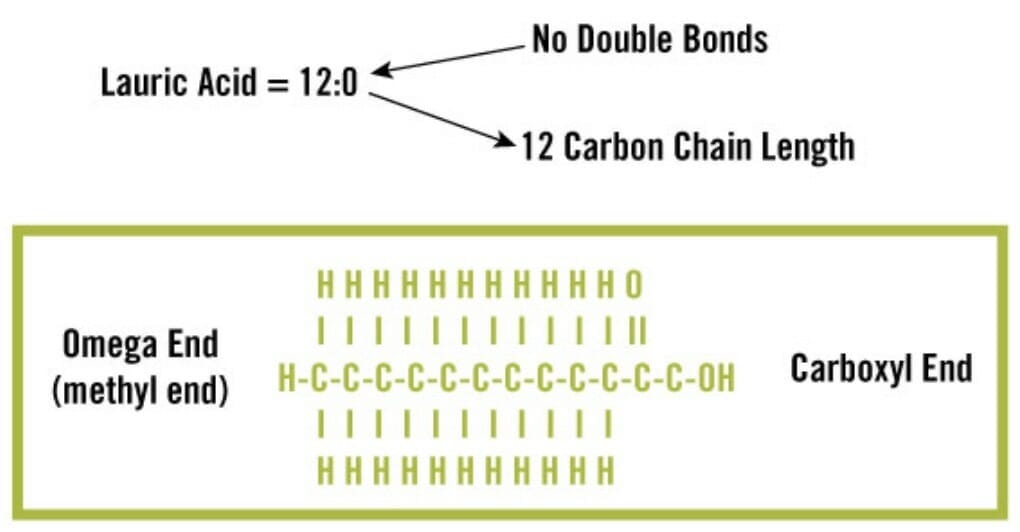
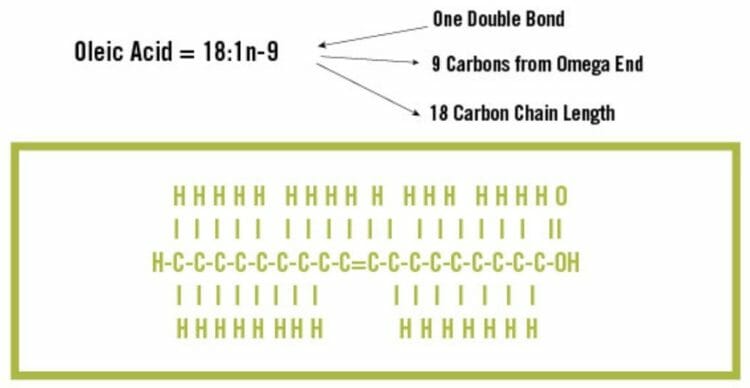
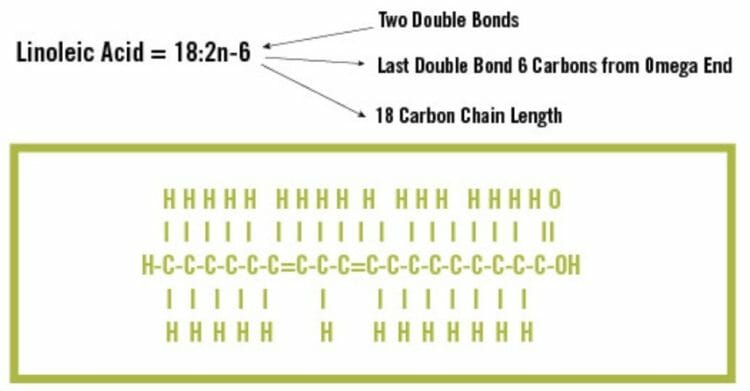
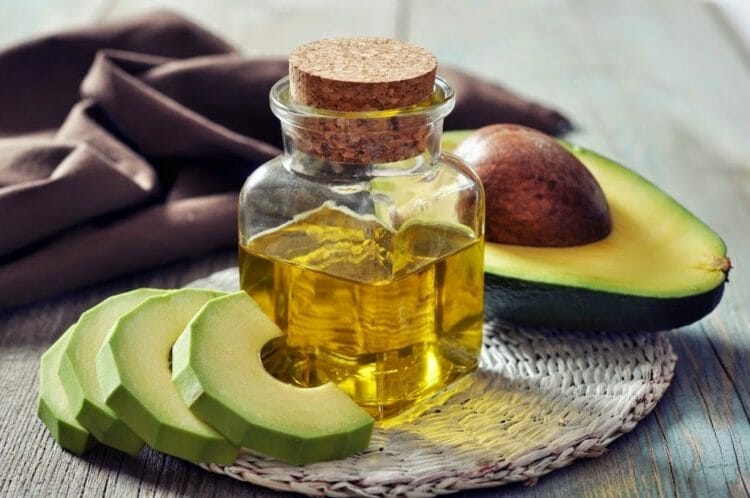
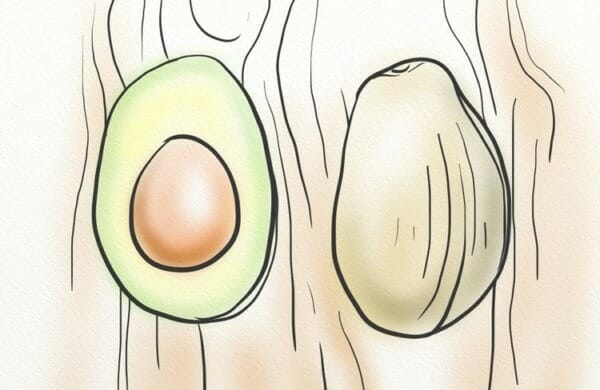
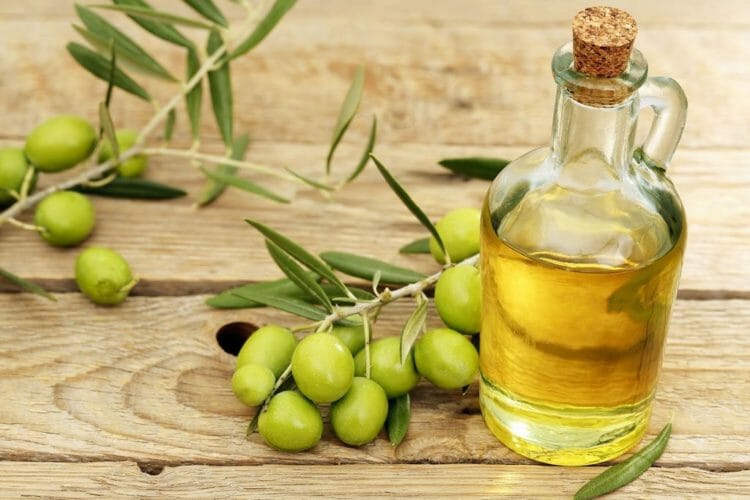
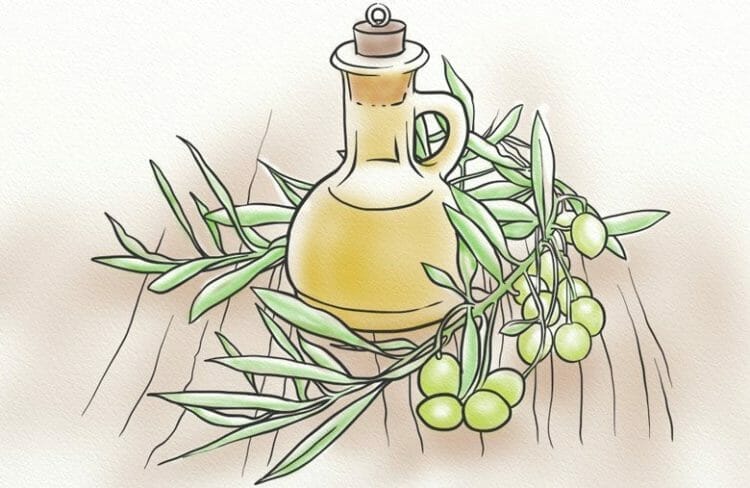
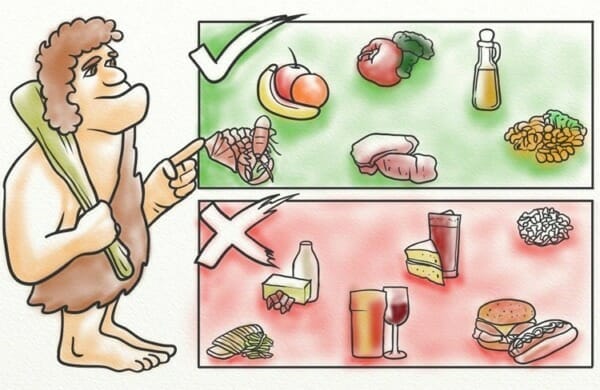
https://drbrianparr.files.wordpress.com/2013/03/dietary-fats.jpg
Missing from this graphic is mainly avacado oil, and for possible comparison, walnut oil, cod liver oil, chia, hemp, fish oil, krill oil, high polyphenol olive oil, and other sources of dietary fat like eggs, avacados, whole milk, goat, sheep cheeses, spirulina, Chlorella etc…
Great read, I’m always trying to better my intake of foods. Its hard with a large Family but we always try. So I usually buy from Costco and get the extra virgin cold press Olive Oil and thoughts on it quality? Also cut all added sugars and artificial sweeteners from diet. Its disturbing how addictive this stuff is and how much they hide it in our food supply. I didn’t know there are literally hundreds of sweeteners that generate insulin production making us all fat!
Hey Kyle,
to be honest, I’ve heard so many bad things about various olive oil brands and since I can test their quality myself, I stopped using EVOO. We use mostly grass-fed butter, tallow and ghee these days. Since we don’t eat salads, we have little need for liquid fats :)
Cheers,
Michael
Coconut oil is terrible for you since it’s incredibly high in saturated fat. I’m surprised you suggested even using it, being a nutrition enthusiast. “The current Dietary Guidelines for Americans recommend consuming no more than 10% of total calories from saturated fat. And last year the American Heart Association (AHA) released a scientific advisory statement recommending the replacement of saturated fats in the diet, including coconut oil, with unsaturated fats. In their statement, the AHA cited and discussed a review of seven randomized controlled trials, in which coconut oil was found to raise LDL cholesterol levels.” – Harvard
Hi Brandon!
It’s been decades since Ancel Keys came up with the BS theory that saturated fats are bad for your health and there are still people (and government organizations) out there that keep parroting this misinformation. So let me make it very clear: There is zero connection between the intake of saturated fats and heart (or any other) disease. Please stop spreading misinformation. Here is a list of recent clinical trials that debunk that myth: https://www.healthline.com/nutrition/5-studies-on-saturated-fat
The real problem is polyunsaturated fatty acids from seed and vegetable oils. Stay away from those and you’ll be fine as have humans over millions of years eating predominantly animal fats.
Totally agree. AHA also recommends
Canola
Corn
Olive
Peanut
Safflower
Soybean
Sunflower
mostly crap.
Lots of folks have issues with PUF causing inflammation, especially people with thyroid problems. There is a brand of EVOO marketed by a famous doctor (not Oz) that contains 30x polyphenol than garden variety EVOO. Olive oil polyphenols have been shown to blast cancer cells in vitro. So they may or may not fight active cancer but I’d wager try can help prevent it. So I’d say best to cook with avocado oil and use super polyphenol EVOO as a drizzle or dip or to make pesto sauce.
I was disappointed there was no “side by side” comparison between the two oils. That chart would show the heating point, fats, vitamins also varieties and costs. Which is better in baking cakes, cookies and muffins. Only a side by side comparison would do for making a fully informed choice.
Good Valerie, thanks! I’m actually in the process of updating the article and also writing another one, comparing all the cooking oils. I’ll take your feedback into account for those two tasks. So check back in a bit please!
Cheers,
Michael
Did you make a comparison chart?
Hi Darlene,
Unfortunately, I still didn’t get to that — too many competing priorities. The goods news is, the comparison article/chart is still on my to-do list.
Cheers,
Michael
I STARTED MAKING MY SALAD DRESSINGS WITH HALF EV OLIVE OIL ORGANIC CERTIFIED AND USDA ORGANIC AVOCADO OIL BECAUSE I FELT THE OLIVE OIL MADE IT BITTER. I THINK IT IS A GOOD MIX AS I GET THE BENEFIT OF BOTH HEALTHY OILS AND LESS BITTERNESS!
Avocado Oil helps lower blood pressure Known to provide essential fatty acids. Good source of vitamins. Contains high amounts of fiber. Helps lower cholesterol level.
I live a low-carb ketogenic lifestyle and subsequently am always on the lookout for good, nutritious fats and oils. I have been a big fan of EV olive oil for salads especially, and more recently have come to love avocado oil. My favorite olive oil is O Extra Virgin California Olive Oil. They also make a range of balsamic vinegars, and I especially like their white balsamic vinegar. I have tried several avocado oils, and for salads, my all time favorite is Primal Kitchen’s extra virgin California avocado oil. It has a clean, fresh, avocado-y flavor that is delicious in salads. They also make a “regular” avocado oil that has less of a distinctive taste that I use for cooking.
I started drinking the lemon/olive oil tonic in the morning (OMG Delicious!!) would using Avocado oil heed the same detox and anti viral benefits? Should I just use EVOO for this? Thx!
Hi Lisanne,
medically, there is no such thing as “detox,” with the exception of “the medical treatment of people with life-threatening drug addictions.” So don’t buy into the detox scam.
Regarding anti-microbial properties of olive oil, there are studies that show that olive oil offers a barrier to foodborne pathogens when you ingest contaminated food. See https://www.ncbi.nlm.nih.gov/pubmed/17536679. But that does not mean that drinking olive oil will kill a cold virus you got from shaking hands with someone who has a cold.
Hi Lisanne,
Your comment on detox is inaccurate as most doctors aren’t trained in natural foods for health.
While I’m aware that western medicine knows little about the impact of foods on human health, detoxing is something the body does by itself. Just stop exposing yourself to toxins and eat a diet that promotes the loss of body fat (where toxins are stored). There is nothing you have to eat specifically or supplement with to speed up that process.
Research shows that unsaturated fats are far better for humans than saturated and transfats. I believe you have a typo in your post where you state:
“As a rule of thumb, saturated and monounsaturated fats are good for your health, but you should stay away from polyunsaturated fats.”
Hi Jay,
It is not a typo, but my statement was in reference to vegetable oils. I clarified that in the article. But generally speaking, there are two main categories of polyunsaturated fatty acids: omega-3 and omega-6. In oils, the ratio between those two is important from a health perspective. There is a link in my article that goes into more details about that. You may also be interested in checking out https://thepaleodiet.com/the-importance-of-the-omega-6-omega-3-ratio-to-human-health.
Hi, may you do a comparison between Avocado vs. Castor oil? I’d truly appreciate it. Thank you
Hi AfroBoho!
I only know Castor oil from skin care, never heard anyone using it for cooking :)
Cheers
Michael
I tried frying with this new oil. It is refined high oleic sunflower oil with 83% monounsaturated fat (doctors say it is the good fat). It is call sunvella frypure. I got considerably better results frying with it than with anything else I tried. Did any one else hear about it? Try it? What do you think?
Hi Edward,
One of the key factors with oils is their Omega 6 to Omega 3 ration. The lower that factor the better. Typical sunflower oil has a lot of Omega 6 and no Omega 3. For an explanation why that is important, check out: http://thepaleodiet.com/vegetable-oil-fatty-acid-composition/
You may also find https://michaelkummer.com/fat-cholesterol-friends/ interesting.
I hope that helps!
UK readers might like to know that Tesco has recently started selling South African Cold Pressed Extra Virgin Avocado from Pure South Press, 250 ml for £2.50.
I eat a humongous salad most days for lunch, and have been for years now (I eat a low carb paleo-ish diet for the past ~7 years now). I have always used EVOO and balsamic for dressing (I just pour some in and then stir the whole salad up)…until last week I went to make a salad and was out of EVOO and found a bottle of Avocado oil that my wife had bought. I gave it a try and was pleasantly surprised – it is mostly tasteless but it seems to bring the flavor of the salad (the peppers, the tuna, etc.) out more, whereas the EVOO just kind of dulls or takes over the taste. Big fan now! I also find I use less of the avocado oil, which makes the price difference a net/net cheaper deal.
I use both, Cal. Ranch olive oil (Robust) and Chosen Foods avocado oil daily. (One Tbl. each a day) I stir fry w/ Avocado oil. use on salads and veggies, soups, etc.